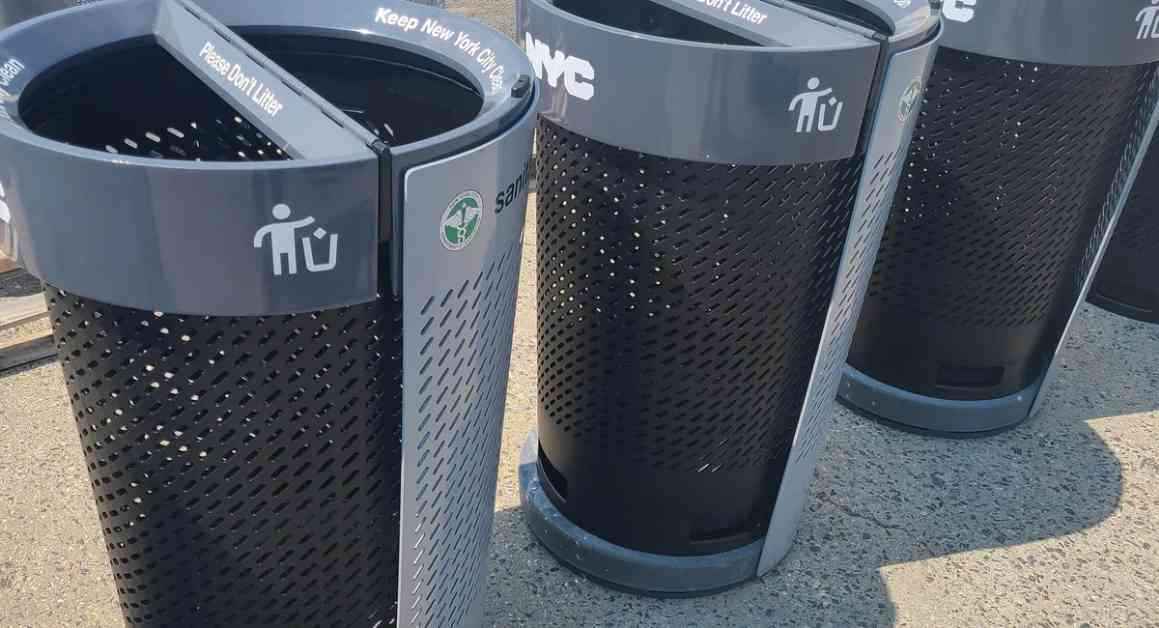President Donald Trump’s proposed tariffs on Canadian imports could have a significant impact on New York City’s innovative $1,000 litter baskets, revolutionizing the city’s waste management system. These futuristic bins, designed to be more rat-resistant and user-friendly, have been gradually replacing the traditional metal baskets on the city streets since 2023. However, the looming threat of a 25% tariff on Canadian goods could jeopardize their production and deployment, potentially leaving the city vulnerable to increased rodent activity and waste management challenges.
New York City’s sanitation department has long relied on the iconic green metal baskets, a staple on every street corner, produced by New York State prisoners. The new bins, manufactured in Quebec, offer several advantages over their predecessors, including enhanced durability, leak-proof design, and improved safety features for sanitation workers. These modern trash cans have garnered praise from both city officials and residents for their efficiency and effectiveness in waste management.
Joshua Goodman, a spokesperson for the sanitation department, emphasized the benefits of the new litter baskets, highlighting their rat-resistance, leak-proof properties, and ease of use for workers. Despite the uncertainty surrounding the potential tariffs and their impact on the supply chain, the department remains vigilant in monitoring the situation to ensure minimal disruption to their waste management operations.
With approximately 23,000 metal baskets slated for replacement, the city has already deployed around 5,000 of the new “trash cans of tomorrow” on the streets. The innovative design of these bins, featuring a robust metal and concrete shell with a lightweight plastic basket, addresses key issues such as rat infestation and illegal dumping. Moreover, the addition of a top bar prevents individuals from disposing of large loads of commercial trash, enhancing the overall cleanliness and safety of the city streets.
While the White House spokesperson, Karoline Leavitt, justified the tariffs on China, Mexico, and Canada as a response to the influx of illegal drugs into America, the potential ripple effects on essential goods like the litter baskets highlight the broader implications of such trade policies. The unforeseen consequences of these tariffs could disrupt not only the production and distribution of the trash cans but also impact the city’s waste management infrastructure and public health outcomes.
As New Yorkers await further developments on the tariff situation, the fate of the city’s $1,000 litter baskets hangs in the balance. The intersection of political decisions and local initiatives underscores the intricate relationship between global trade policies and everyday municipal operations. The potential repercussions of these tariffs extend beyond economic considerations, resonating with the daily lives of city residents and sanitation workers who rely on these innovative solutions for a cleaner and more efficient urban environment.
By prioritizing the long-term sustainability and effectiveness of waste management practices, New York City remains at the forefront of innovation and environmental stewardship, navigating the complex challenges posed by external factors like trade tariffs with resilience and adaptability. As the city continues to evolve and address the evolving needs of its diverse population, the future of its waste management system lies in a delicate balance between technological advancements, economic realities, and public health priorities.












